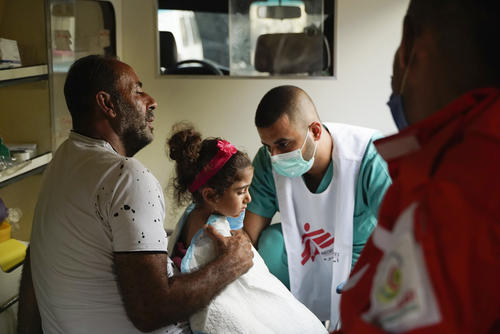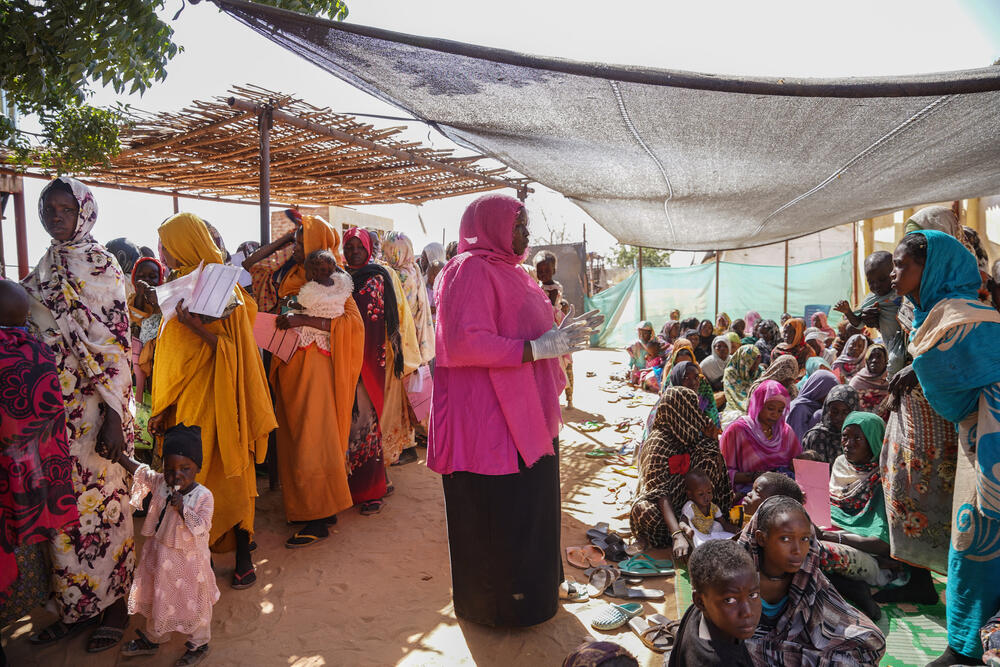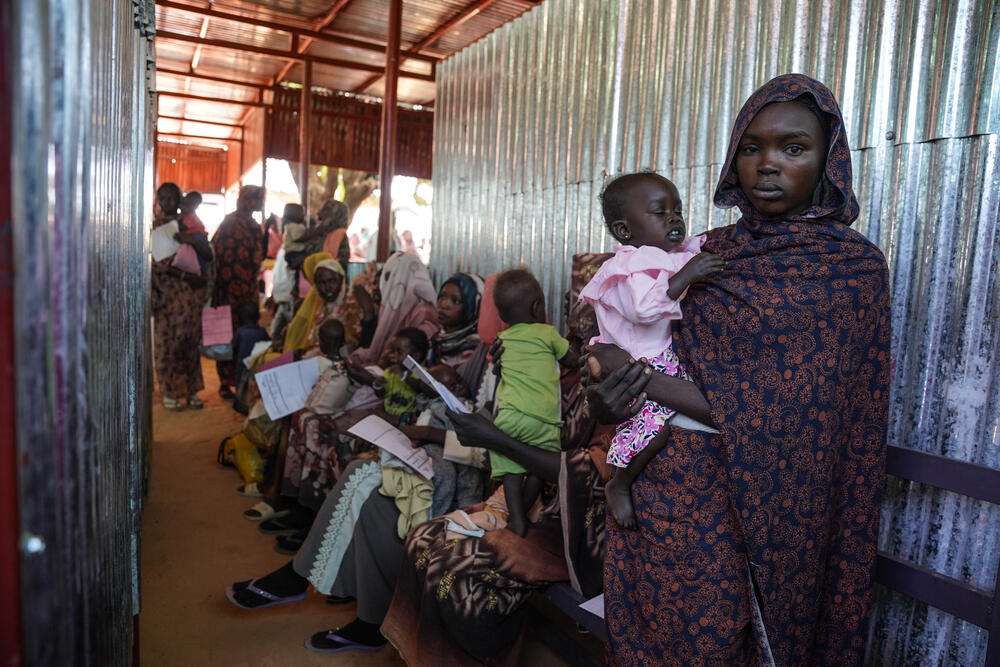Sudan: Supply blockade forces MSF to stop care for 5,000 malnourished children
For months, warring parties have blocked deliveries of food, medicines and other essential supplies to Zamzam displacement camp in North Darfur, Sudan. This has forced Médecins Sans Frontières / Doctors Without Borders (MSF) to stop outpatient treatment for 5,000 children with acute malnutrition in the camp.
As supplies ran low at the end of September, MSF was forced to stop care for 5,000 children on an outpatient basis, including 2,900 children with severe acute malnutrition.
In the camp, only MSF's 80-bed hospital remains functioning to treat children at the greatest risk of dying.
"There is an urgent need for a massive supply of nutritional products and food to help the population, which is currently in a catastrophic situation," said Michel-Olivier Lacharité, MSF Head of Emergency Operations.
"MSF is calling on the various stakeholders, the governments, the allies of the parties to the conflict, the Rapid Support Forces, the Sudanese Armed Forces and the Joint Forces, to facilitate humanitarian aid delivery to the camp."
Some limited supplies have arrived in recent weeks, including medical supplies that MSF was able to transport, but the quantities remain far too low to meet the needs of people suffering from malnutrition in Zamzam camp, where approximately 450,000 people live.

Get closer to the Frontline
Get the latest news, stories and updates, straight to your inbox.
Famine in Zamzam camp
The crisis has attracted broader international attention as the IPC Famine Review Committee concluded in August that a famine was underway in Zamzam camp.
MSF's own malnutrition assessments found that 30 percent of children were malnourished in multiple surveys earlier this year, estimating that a child was dying of causes linked to malnutrition every two hours on average.
As the current crisis also limits MSF's ability to collect new data, the current rate of death among children is not known.
"In the last few days, we've seen some positive signs, with trucks arriving after months of almost complete blockade around the camp. However, these quantities are insufficient," Lacharité said.
"These are positive signs, and we can see that the parties to the conflict recognise the seriousness of the situation and are starting to let trucks arrive.
“If we are to have a massive response, the aid agencies will also have to significantly step up their efforts and all diplomatic stakeholders negotiating with the parties to the conflict will have to convince them to ensure that this delivery continues over the coming months."
For example, providing a month's worth of emergency food rations (i.e. around 500 calories a day per person) to the 450,000 people in Zamzam represents around 2,000 tons of rations. It would take 100 lorries a month to deliver them.
MSF and the crisis in Sudan
On Saturday 15 April, intense fighting broke out across Sudan with a wave of gunfire, shelling and airstrikes.
The violence between the Sudanese Armed Forces (SAF) and the Rapid Support Forces (RSF) has trapped millions of people in the middle of an unexpected conflict. Many have been forced to flee their homes while access to essential services such as healthcare has become increasingly difficult.
Médecins Sans Frontières / Doctors Without Borders (MSF) teams already working in Sudan have been responding to the crisis since its first moments.

